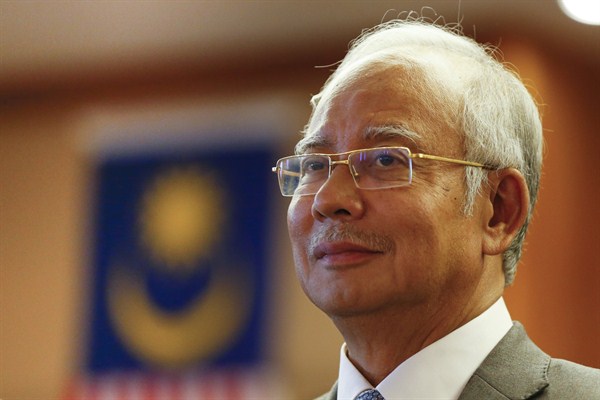Since early July, when The Wall Street Journal and the Sarawak Report, an investigative website, reported that companies linked to the embattled, indebted Malaysian sovereign wealth fund 1MDB had allegedly transferred up to $700 million into the personal accounts of Prime Minister Najib Razak, Malaysia’s normally placid politics have exploded. The allegations came amid an ongoing battle within the ruling coalition between Najib and supporters of longtime former Prime Minister Mahathir Mohamad. On Monday, Mahathir declared in a statement that democracy in Malaysia was dead, “because an elected leader chooses to subvert the institutions of government and make them his instruments for sustaining himself.” Najib is fending off challenges from some of his own former aides, and even Najib’s own brother, a respected banker, appears to be distancing himself.
The scandal is now affecting Malaysia’s economy, with investors pulling funds, the stock market sliding and the currency at its lowest point against the dollar since 1998. Those pressures have pushed key foreign policy issues, including major trade negotiations and migrant policy, to the sidelines.
For months, through international reporting and an investigation by a group of Malaysian state agencies, Malaysians have learned about the alleged problems within the state wealth fund, including theft of funds for personal use and misappropriation for everything ranging from a string of poor investments to propping up state companies and paying for the governing coalition’s electoral campaign. Mahathir, who either was genuinely appalled by reports of 1MDB’s waste and Najib’s wealth or wanted to maneuver his own allies into the leadership—or some combination of the two—has been attacking Najib online and at public events for months.

